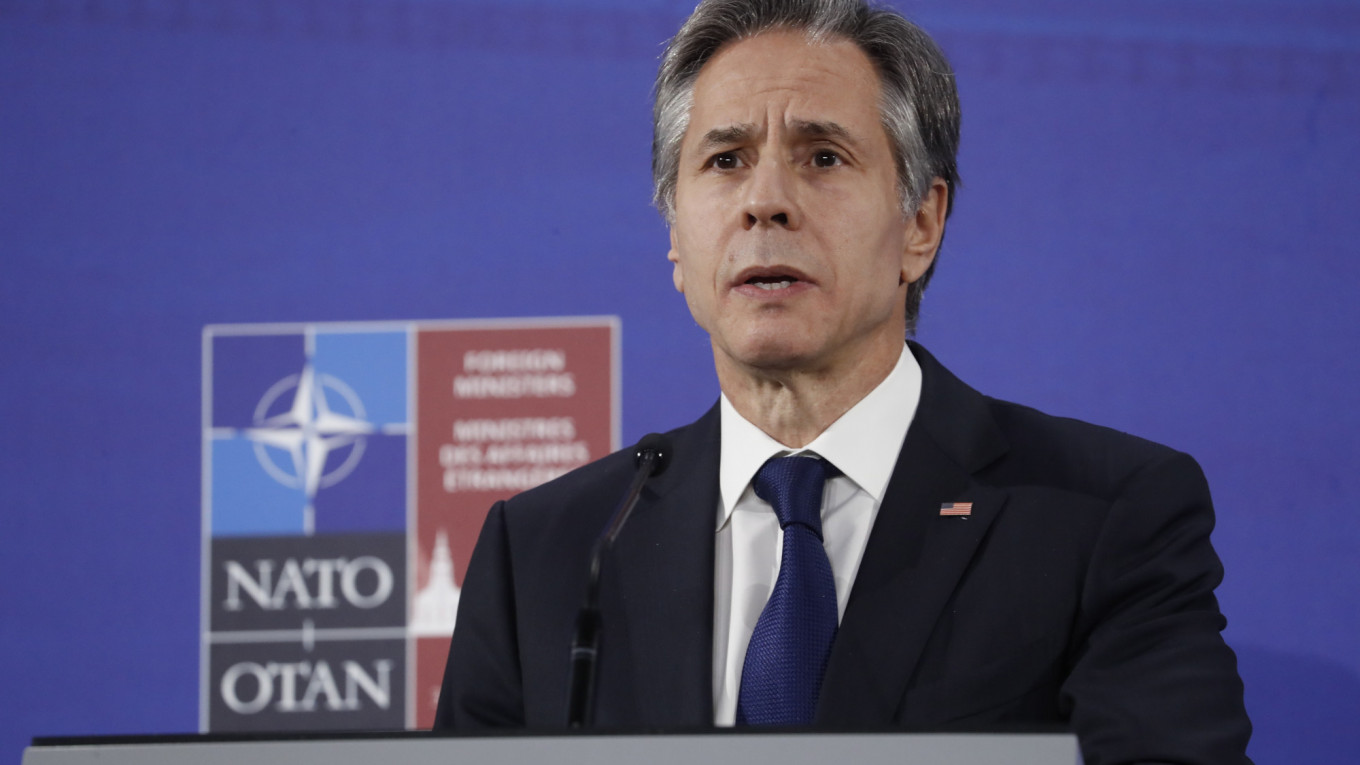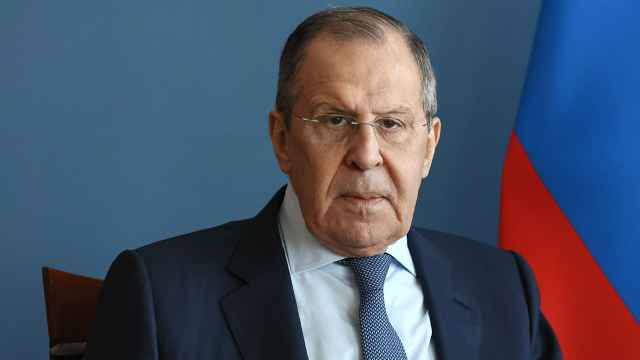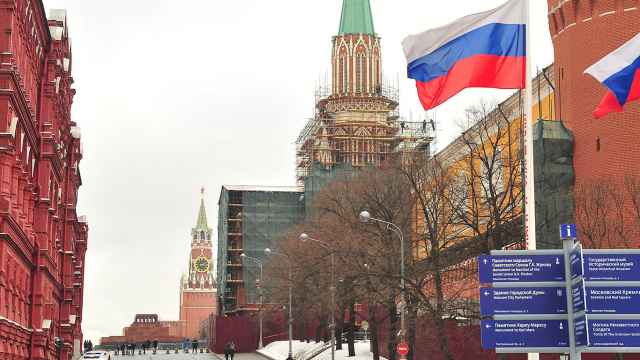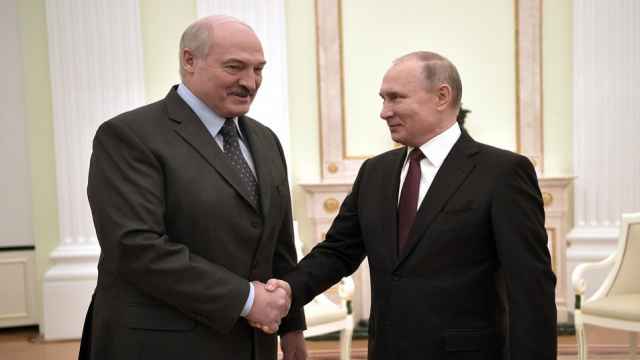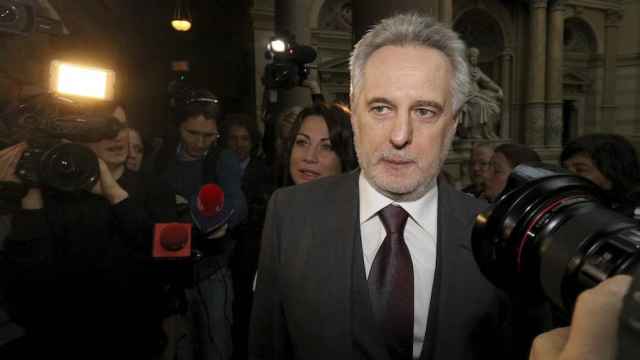U.S. Secretary of State Antony Blinken said Wednesday that Washington had seen "evidence" Russia could be planning an invasion of Ukraine, threatening Moscow with painful economic sanctions if it attacks.
Blinken accused Moscow of massing "tens of thousands of additional combat forces" near Ukraine's border as he geared up for talks with Russian counterpart Sergei Lavrov in Stockholm over the crisis.
"We're deeply concerned by evidence that Russia has made plans for significant aggressive moves against Ukraine, plans include efforts to destabilise Ukraine from within as well as large scale military operations," he said after a meeting of NATO foreign ministers in Latvia's capital Riga.
"Now, we don't know whether President (Vladimir) Putin has made the decision to invade. We do know that he's putting in place the capacity to do so on short order, should he so decide," he said.
Blinken insisted "diplomacy is the only responsible way to resolve this potential crisis" but warned there would be "far-reaching and long-lasting consequences" for Moscow if it pushed ahead with any aggression.
"We made it clear to the Kremlin that we will respond resolutely, including with a range of high-impact economic measures that we've refrained from using in the past," Blinken said.
Kiev's Western allies have been sounding the alarm since last month over a fresh Russian troop buildup around Ukraine's borders and a possible winter invasion.
Russia, which seized Crimea from Ukraine in 2014 and backs separatists fighting Kiev, has strongly denied it is plotting an attack and blames NATO for fuelling tensions.
Ukraine seeks Russia talks
Moscow on Wednesday hit back by accusing Ukraine of massing tens of thousands of troops in the country's east, as worries grow over an escalation.
The allegations came as Ukrainian President Volodymyr Zelensky called for direct talks with Moscow over the festering conflict with Russian-backed separatists in the east of his country.
"We must tell the truth that we will not be able to end the war without direct talks with Russia," Zelensky said during an annual address to lawmakers in Kiev.
More than 13,000 people have been killed in a war that began in 2014 between Ukraine and pro-Russian separatists, who have carved out two "People's Republics" in eastern Ukraine.
In Moscow, Putin's spokesman Dmitry Peskov appeared to pour cold water on the idea, reiterating that the war was a domestic problem in Ukraine.
"We know of attempts to present Russia as a party to this conflict. This is not the case," Peskov told reporters.
"The war in Donbass can only be stopped through negotiations between Ukrainians and Ukrainians."
A senior U.S. official on Wednesday urged a "complete ceasefire" on the Donbass conflict over Christmas.
"With the Christmas season coming, this is a time for a resumption of complete ceasefire, for prisoner exchange and for re-opening of crossing points so that families can visit," Victoria Nuland, the U.S. Under Secretary of State for Political Affairs told a security forum in Kiev via a video link.
"We have been encouraging both Moscow and Kiev to work together on a package of those kinds of measures," Nuland added.
'Red lines'
Putin has warned the West and Kiev against crossing the Kremlin's "red lines" over staging military exercises and building up weaponry in Ukraine.
Blinken insisted in Riga that NATO allies were "making sure that Ukraine has the means to defend itself."
And he said that the alliance would "look at what it needs to do in the event of further Russian aggression, to shore up its own defenses" as NATO eyes bolstering forces along its eastern flank.
Blinken said Russia was using the same "playbook" it employed when it took control of Crimea, including by intensifying "disinformation" to portray Kiev as the "aggressor".
The foreign minister of Ukraine – which has seen its bid for membership in NATO stall – urged the U.S.-led alliance for a "deterrence package" to stop Russia as he attended the meeting in Riga.
EU foreign policy chief Josep Borrell also pledged the bloc "will be standing firmly and decisively with Ukraine in front of any attempt to undermine its territorial integrity and sovereignty."
"Everything has to be done in order to make clear that any aggression against Ukraine will have a strong response."
A Message from The Moscow Times:
Dear readers,
We are facing unprecedented challenges. Russia's Prosecutor General's Office has designated The Moscow Times as an "undesirable" organization, criminalizing our work and putting our staff at risk of prosecution. This follows our earlier unjust labeling as a "foreign agent."
These actions are direct attempts to silence independent journalism in Russia. The authorities claim our work "discredits the decisions of the Russian leadership." We see things differently: we strive to provide accurate, unbiased reporting on Russia.
We, the journalists of The Moscow Times, refuse to be silenced. But to continue our work, we need your help.
Your support, no matter how small, makes a world of difference. If you can, please support us monthly starting from just $2. It's quick to set up, and every contribution makes a significant impact.
By supporting The Moscow Times, you're defending open, independent journalism in the face of repression. Thank you for standing with us.
Remind me later.


